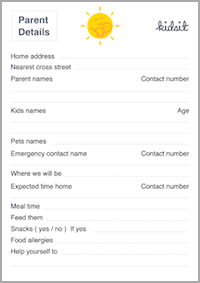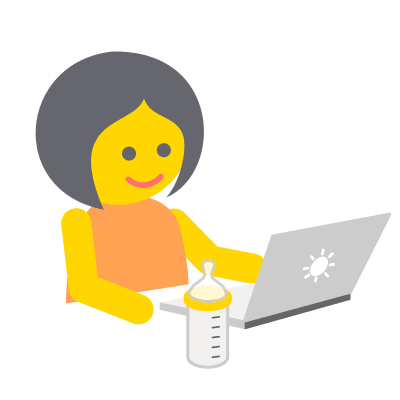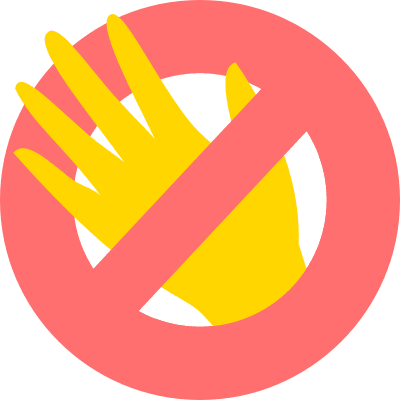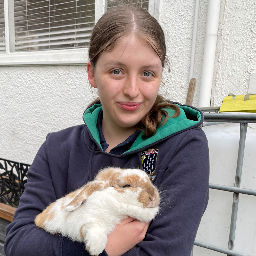How To Prepare For Your First Babysitter (15 Essential Tips)


Written & Illustrated by
Matthew James Taylor
Kidsit Founder, General Manager

Medically Reviewed by
Gina Maria Jansheski, MD, FAAP
Board-Certified Pediatrician, Medical Reviewer
Key Takeaways
- Ease into it gradually: Start with short outings close to home to build trust and comfort for both you and your child.
- Don't feel guilty: It's normal to need a break; taking time for yourself doesn't make you a bad parent.
- Find a trustworthy babysitter: Look for someone mature and experienced, ideally 16 or older, especially for infants.
- Prepare your child: Talk about the babysitter in advance, discuss routines, and reassure your child.
- Leave detailed instructions: Provide emergency contacts, medical information, and any special instructions.
- Set clear expectations: Discuss house rules, bedtime routines, and any other important guidelines.
- Keep important items accessible: Ensure the babysitter knows where to find diapers, snacks, and other necessities.
- Communicate openly: Maintain an open line for questions or updates during the time you're away.
- Trust your instincts: If something doesn't feel right, it's okay to make adjustments or try a different sitter.
If you've been feeding and diapering your new baby for months, it's time for a break. But when you've never hired a babysitter before, it can certainly be an intimidating proposition.
Your mind probably fills with all of the things that could potentially go wrong if you leave your baby alone with a sitter. But with a little preparation, you can put the bulk of your worries to rest.
How to prepare for your first babysitter:
- Find a babysitter you can trust
- Ease yourself into it gradually
- Don't let yourself feel guilty
- Leave an emergency contact list
- Make a schedule
- Leave plenty of milk, formula or snacks
- Set one place to keep important paperwork
- Give your babysitter a house tour
- Set your house rules
- Have questions to ask when you get home
In this article, you'll learn how to prepare your home, your child, and yourself for your first babysitter. Once you're set, you'll finally be ready to enjoy a dinner date or evening out for the first time in months!
1. Ease Yourself Into It Gradually
The first time you decide to leave your child alone with a babysitter, you don't have to make it into a day-long ordeal. New parents generally find the first time to be the hardest. So if you're nervous, make it fairly quick. Plan to eat at a restaurant that is just around the corner and head back home right after for your first baby-free date.
Once you build up some trust with your sitter and get used to the freedom, you'll feel more confident going out for more extended periods and a little further from home without too much worry.
Understand that it's natural to have some initial apprehension about leaving your child alone for the first time with someone new, or even a friend or family member. So, if you need to take some baby steps to feel better about it, try to take things as gradually as you can.
How often should you hire a babysitter? Find out here - How Often Do You Use a Babysitter?
2. Don't Let Yourself Feel Guilty
If you're feeling any guilt about leaving your child at home with a babysitter, try your best to let go of it! Put things in perspective and remember that all parents have someone else watch their children at some point. If not now, you definitely will need to learn to let go when it's time for daycare or preschool! So getting used to having a babysitter look after your child for a few hours is a significant first step.
Know that it is normal to desire some free time away from your baby, and it doesn't make you a bad parent to need a break or want some time for yourself. Parenthood is emotionally and physically draining, and it's nonstop. So give yourself permission to get a babysitter and get out of the house once in a while. Your baby will still be there when you get back, and you will be feeling a whole lot better!
3. Find A Babysitter You Can Trust
Before you can prepare for your first babysitter, you must begin by finding the right one! You'll want someone who has a personality that you feel you get along with, and it's important that you have a good gut feeling about that person.
There is normally an abundance of teenage girls (and some boys) looking for their first babysitting jobs in any given area. They might make fine babysitters once your child is a bit older. But if you have a newborn infant, it's better to find an older and more experienced babysitter for your first time.
Ideally, you'll want a sitter who is 16 or older. They're likely to be more mature and responsible than a babysitter who is only 12 or 13. They'll also tend to have more direct experience with changing diapers and feeding babies.
To start your search for a babysitter, I recommend asking around to family and friends to see if they have any babysitters they've used in the past who they recommend. You can also find a babysitter on Kidsit, we have many great babysitters to choose from, and it's free to contact them.
If you're not sure where to get started, check our complete guide: The Best Ways to Hire a Babysitter.
Don't be afraid to interview several potential babysitters to make sure you find someone who's the perfect fit. You may even want to pick two or three favorites and have them complete a paid "working interview," where they watch the baby while you're still at home doing chores or other things in another room. That will let you see them in action and give you a good idea of what kind of babysitter they actually are.
4. Work Out How Much You'll Pay
Before you interview your babysitter, you should have an hourly rate in mind that you plan to pay them for their services. Present them with this information when you offer them the job, rather than keeping them wondering until you get home the first time they babysit.
If you aren't sure how much to pay them, ask around ahead of time to other parents you know to see what the going rate for a babysitter is in your area. It can vary a lot, even city by city.
Most sitters prefer to be paid in cash. These days, a lot of people pay for everything with their debit or credit card, so you might not automatically have much cash that you carry around. So plan to stop by the bank or an ATM a couple of days beforehand to make sure you have some cash on hand when you go to pay the sitter.
Average Babysitting Rate Per Hour By Country
See what the average babysitting rate is in your area to get a good idea how much you should pay.
| Country | 1 Kid | 2 Kids | 3+ Kids |
|---|---|---|---|
| United States | $16.82 | $18.50 | $20.18 |
| Canada | $18.36 | $20.20 | $22.03 |
| United Kingdom | £11.39 | £12.53 | £13.67 |
| Australia | $26.79 | $29.47 | $32.15 |
| New Zealand | $22.76 | $25.04 | $27.31 |
(Babysitting statistics calculated weekly from our live member data — Updated 31 Jan 2026)
Babysitting pay rates vary by region so search for your exact location to get a more precise average pay.
See our complete guide to babysitter pay for all the details that parents often ask about.
5. Make An Emergency Contact List
Your babysitter probably already knows the basics, like to call 911 (or your country's emergency number) if a true emergency arises. But it's a good idea to create a complete emergency contact list just in case. You can include things like the number for poison control, as well as the cell numbers of some family members, neighbors, or friends they can reach for help if, for any reason, you're not available to answer your phone.
You should include your cell phone number at the top of the list along with the number for your spouse or partner. Just make sure to discuss with your babysitter what things you'd like to be called about, like if your baby isn't eating or sleeping, routine questions, or if you only want to be contacted in an emergency. It's good to give some examples of what sorts of things you do or don't consider to be an emergency.
6. Make A Schedule
Let your babysitter know what your typical timings are for sleep, feedings, and changes. Write out a list or schedule in advance so they can refer to it and make sure they're staying on track. Let them know common exceptions, quirky things that your baby does on occasion, or special methods that help to get your baby to calm down or sleep. That way, they won't feel pressured or wonder if it's out of the ordinary for your baby to not be eating or sleeping at a particular time.
Leave room in your schedule for your babysitter to make notes or reminders, check off tasks, or make minor modifications they might feel are necessary.
7. Leave Plenty of Milk or Formula
If you're pumping, you'll want to make sure there is lots of extra breastmilk in the fridge to spare. For some babies, I swear they seem to work up more of an appetite when their parents aren't around.
For moms who have been exclusively breastfeeding, don't make your babysitter the first one to find out if your baby will take a bottle or not. Practice bottle feeding a few times, beginning at least a few weeks before you plan to use your babysitter. That will help to get your child used to it, so your babysitter is less likely to struggle.
If you're feeding formula, there's less planning required. But you should still make sure that you have plenty stocked up, as your sitter is unlikely to be able to go to the store if they run out.
8. Plan Out The Babysitter's Meals
If you plan on feeding your babysitter, you'll want to work out the details in advance. Usually, it's the norm if your sitter is working around dinnertime to provide them with something to eat.
You might just let them know there are leftovers in the fridge or freezer they can heat up, or stock your cupboard full of basic snacks. It can be something as simple as a ready-made or microwaveable meal and some fruit. If you're really nice, you might offer to order a pizza or some other kind of takeout for them!
Let your babysitter know what food you have that they are allowed to eat. And, equally importantly, let them know if there is something they shouldn’t eat. If they don't have permission to go into the fridge, make sure to let them know that ahead of time, especially if there's something really tasty in there you're hoping to eat the next day. It would be a shame if it was gone when you got home!
Are you supposed to provide dinner for your babysitter? Find out what's the norm in this article - Do You Provide Dinner for Your Babysitter? and see our recommended food ideas that are easy to prepare.
Kidsit babysitting statistics
41.68% of babysitters have an interest in cooking, 56.58% can make snacks and light meals, and 38.21% are happy to make full meals.
9. Write An Information List
Your information list should include most of the information your babysitter might want or need to know. Depending on how much information you would like to share, it may be several pages long.
Some basic things you definitely want to include are:
- Your full name and address, including major cross streets (and home phone number if you have a landline)
- Information on where you are going to be while you're out
- Full name and cell number of the first emergency contact person they should call if they are unable to get ahold of you
- Name and contact information of your child's doctor
- Any known allergies your child has, medications, or special health instructions
You might also want to share some more optional stuff such as your WiFi and Netflix passwords, how to use the stove or washing machine, and where to find extra diapers, blankets, or other supplies.

Babysitter Checklist (Parent details form)
Use this form to capture all the important information you need to leave for your babysitter, fill it out and leave it in a handy place for your babysitter to access.
(parent-details-form-v2.pdf 36kb)
For a complete list of information to provide your babysitter with, check out this article - What Information Do You Leave for a Babysitter?.
10. Give Your Babysitter A House Tour
The first time you have a new babysitter come to your house, it's good for them to show up 10 minutes early so that you can give them a tour around your home.
This will be an opportunity to point out a basic layout of your house and where any important things like your first-aid kit, circuit breaker, washing machine, home alarm, fire extinguisher, flashlight & batteries, and other items are located. Try to keep in mind anything that a babysitter might need to use at some point.
A tour is great because it might prompt you to think of things you hadn't written down on your information list, and it also gives your babysitter a chance to ask any questions of their own.
11. Set Your House Rules
There are certain things you may want your babysitter to do or not do in your home. And, although some of them might seem self-explanatory to you, they aren't necessarily so obvious to everyone else!
Some rules you may include are:
- Not leaving the house with your child
- Never leaving your child alone
- Not giving your child any medicine
- Don't give your child whole grapes, hot dog, raw carrots, nuts, or any other smooth, hard foods they might choke on.
- No sleeping on the job (you'd be surprised!)
- Not having any friends over while babysitting
- Any places in your home that either the babysitter or your child isn't allowed to be, or things they're not allowed to do, like going in your bedroom, smoking, or using the family computer
- Whether or not your pets are allowed on the furniture or outside
See our recommended list of babysitter rules that all parents should enforce.
12. Set One Place To Keep Important Paperwork
You should decide on one central place that you plan to keep all of your paperwork related to the babysitter. Usually, the kitchen makes the most sense. You can either leave things on the counter, in a certain drawer, or on the fridge with a magnet.
That way, your babysitter knows where to go if there is any information they need answers to. All of your emergency contacts, information lists, calendars, house rules, and worksheets should be kept together. It also makes sense to leave a pen and pad of paper readily available in case your babysitter needs to take any phone messages or just wants to write some notes during the course of their time babysitting.
13. Make Some Extra Sets of Keys
Even though it's pretty unlikely that your new babysitter will be leaving the home with your newborn, it doesn't hurt to have a spare set of keys available for them. If nothing else, they might need to lock up in case of an emergency, like if they need to take your child to the doctor or hospital.
If there are any locked rooms or drawers that the babysitter might need to open, be sure to leave an extra key for those as well.
Not feeling comfortable leaving a set of keys for your babysitter? You can leave them with a neighbor you trust or a relative who lives close by instead if you prefer. You should probably think about doing that anyway, just in case the babysitter were to ever get locked out of the house.
14. Hide Any Personal Items In Advance
Your babysitter will have full access to your house, and will probably need to access most of the rooms over the course of their time there.
Take a walk around your home looking for any personal items just laying out that you might not want the babysitter to see. This can include stuff like open mail and bills, medication, or anything else in your home that you aren't comfortable with a stranger seeing.
It's unlikely that a babysitter will go snooping through your things anyway, but it's always good to just remove the temptation entirely.
15. Have Questions To Ask When You Get Home
After you get home, you'll want an update from the babysitter about how the night went.
You can ask them questions like how your child behaved, if there were any problems, if there was anything that made them feel uncomfortable, or whether any questions came up that they would like answered.
Following up with your babysitter will also potentially point out any shortcomings, things you forgot about or overlooked, or general ways to make a better experience for both of you next time.
Remember That You're In Charge
It sure might not always feel like it, but you're the responsible, mature adult in this situation. Your babysitter is likely a teenager with limited experience who will look to you for instruction and guidance on how to do their job.
Your babysitter is essentially your employee, so the more details and structure you can give them, the easier and more clear it will be for them to perform their job duties. You'll both be feeling more comfortable and satisfied with the arrangement when the expectations are clear.
Conclusion
As a new parent, you're probably pretty torn between the extremes of exhaustion and needing a break, but not feeling like you can trust anyone else with your baby. Using a babysitter is nothing to be afraid of, especially if you've done your due diligence to properly interview them and complete a background check, and you feel like you've found someone that's a good fit.
Eventually, you will have done all you can to prepare. So don't overthink it. If you've accomplished everything discussed in this article, you're probably in a really good position to leave your baby with your specially chosen babysitter for the first time. Now it's just time to take that first step out the door, and back to having a chance every once and a while to get out of the house.
Next:




































